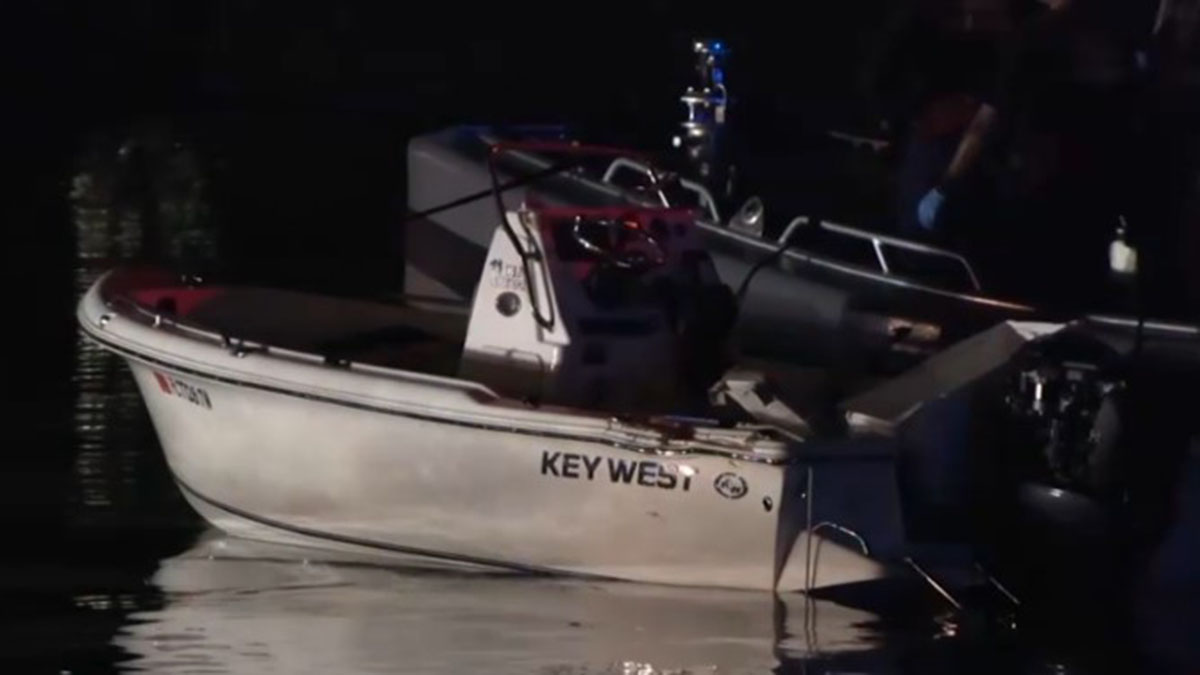One of the first sights greeting passengers at the Key West International Airport is a statue of two families with children standing around a large, concrete buoy. "Ninety miles to Cuba," reads the words etched on the centerpiece.
From that runway, tourists are closer to Havana than they are to Miami. And decades ago, residents of this southernmost outpost in Florida could fly to Cuba for lunch and be back in time for dinner.
It's only a short flight across the Florida Straits, once crisscrossed regularly. But that hasn't happened since 1960 and it's uncertain whether it will happen any time soon.
Two years ago, U.S. Customs and Border Projection gave Key West the green light to resume flights to and from Cuba that had long been stifled by a ban on most American travel to the island after the Cuban Revolution. Yet not a single plane has taken off for the island since.
"Several organizations have approached us, including airlines, and said, 'If you get status as a port of entry for Cuba, we sure are interested in flying to Cuba,'" Key West International Airport director Peter Horton said. "And so far all of those — and there are at least four that I can remember offhand — have not been successful."
Charter flight companies and booking agencies say they've struggled to get all the required approvals from U.S. and Cuban authorities. One of the charter companies that initially was taking part in the airport's application has gone out of business. Another stopped service to Florida altogether.
Then there's the issue of airport capacity: Currently, Key West is only approved by U.S. Customs and Border Protection to process 10 passengers and crew flying in from Cuba at any one time. The airport is working on an expansion that would eventually allow it to process about 70.
Local
"If you would have a 30-seater, or a 25-seater that could do flights, that could be a profitable operation," said John Cabanas, former president of C&T Charters, which initially wanted to do the flights but has since closed.
Key West and Cuba have a long and intertwined history. So when President Barack Obama announced in 2011 that he was directing agencies to allow all U.S. international airports to apply to allow licensed charters to operate Cuba flights, Key West was among the first to apply.
There are now 19 U.S. airports authorized to provide flights to the Caribbean nation, which has had limited diplomatic relations with the U.S. since shortly after the 1959 revolution. Under Obama, travel to Cuba has increased. U.S. citizens can once again apply for so-called people-to-people licenses, which encourage cultural and educational exchanges. Cuban-Americans also have returned to visit the island in rising numbers.
Cuban officials have said they receive as many as 500,000 visitors from the United States annually, most of those Cuban-Americans visiting relatives.
The majority depart from big cities like Miami and New York. But Key West has long held a special place in the story of U.S. and Cuba relations.
Cuban poet and independence leader Jose Marti visited Key West to rally support from the island's large and wealthy Cuban population in 1892. He spoke to workers in the island's many cigar factories and at the San Carlos Institute, a stately building that still proudly hangs a large Cuban flag from its balcony.
The first flight ever to depart from the island left en route to Havana, as did the first commercial Pan American Airlines plane in 1928. And there were once daily ferries.
That history is still palpable today. Locals boast Key West has at least 20 Cuban coffee shops and just one Starbucks.
Nance Frank, director of a Key West art gallery, was born and raised on the Florida island and recalls how she learned the Cuban national anthem before the Florida one. "I can still sing it," she said gleefully.
Unlike Miami 160 miles to the north, there tends to be less contention about Cuba in Key West. Exchanges between the two have flourished. Endurance swimmer Diana Nyad has been celebrated here after recently becoming the first woman to swim across the Straits without a shark cage.
"There's been a move from the people of Key West for many, many years to reconnect the two islands," city commissioner Tony "Fat" Yaniz said.
Still, there are moments of tension. A city move to bring Cuban diplomats to lay a wreath at a statue of Jose Marti in the San Carlos Institute earlier this year drew a heavy rebuke. The institute's director is opposed to resuming flights to Havana, as well.
"It's very insulting for people to use my heritage to say that they are promoting Cuban history and Cuban heritage when in fact all they want is Cubans' money with no concern for a political opening in Cuba," said Rafael Penalver, president of the San Carlos Institute's board of directors.
But Horton, the airport director, said he hasn't fielded any calls from islanders angry about flights.
"We aren't breaking new ground here," Horton said. "This isn't the first airline flight to Cuba. Hundreds of people go back and forth to Cuba every day in Miami."
In October, it appeared the flights were just around the corner.
Mambi International Group, a travel agency, teamed up with charter operator Air Marbrisa Airlines to operate a flight. Mambi executive Isaac Valdes said the flights would be set to depart Nov. 15.
But one week before, Bob Curtis, the head of Air Marbrisa, wrote to Horton to say flights were being delayed. He said Mambi had failed to obtain a required certificate from the Department of Transportation. Curtis set the new date of departure as Dec. 15. He declined to comment when reached by phone.
Horton said companies have also faced delays with Cuban authorities. One interested charter agency said it had applied to the Office of Foreign Assets Control over two years ago and was still awaiting approval. Robert Valle, president of Florida AeroCharter, Inc., said he checks in periodically, including just three months ago.
Valle said he was told all the company's documents were complete and were being processed.
"In other words, 'Don't call us, we'll call you,'" Valle said. "Pretty frustrating."



